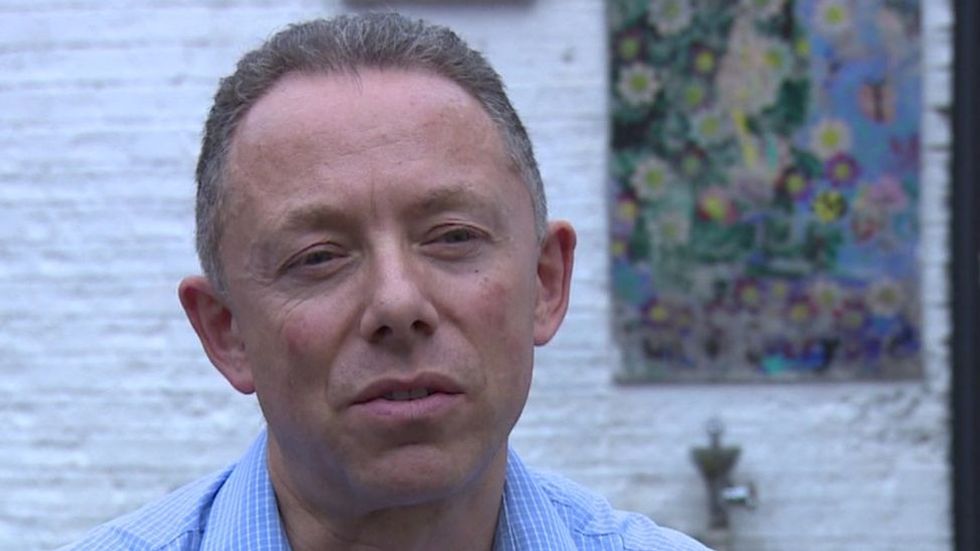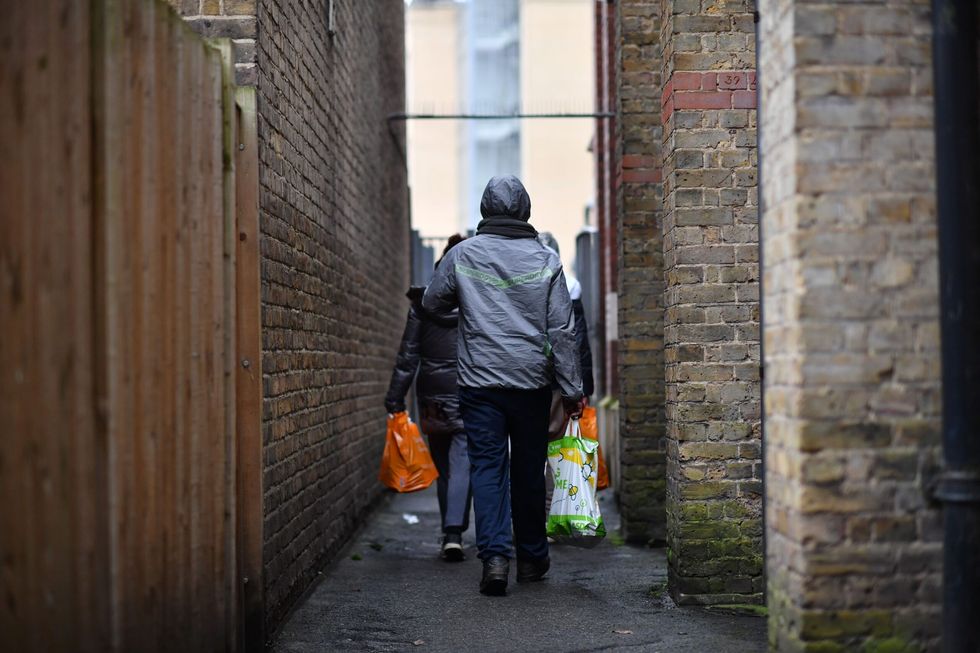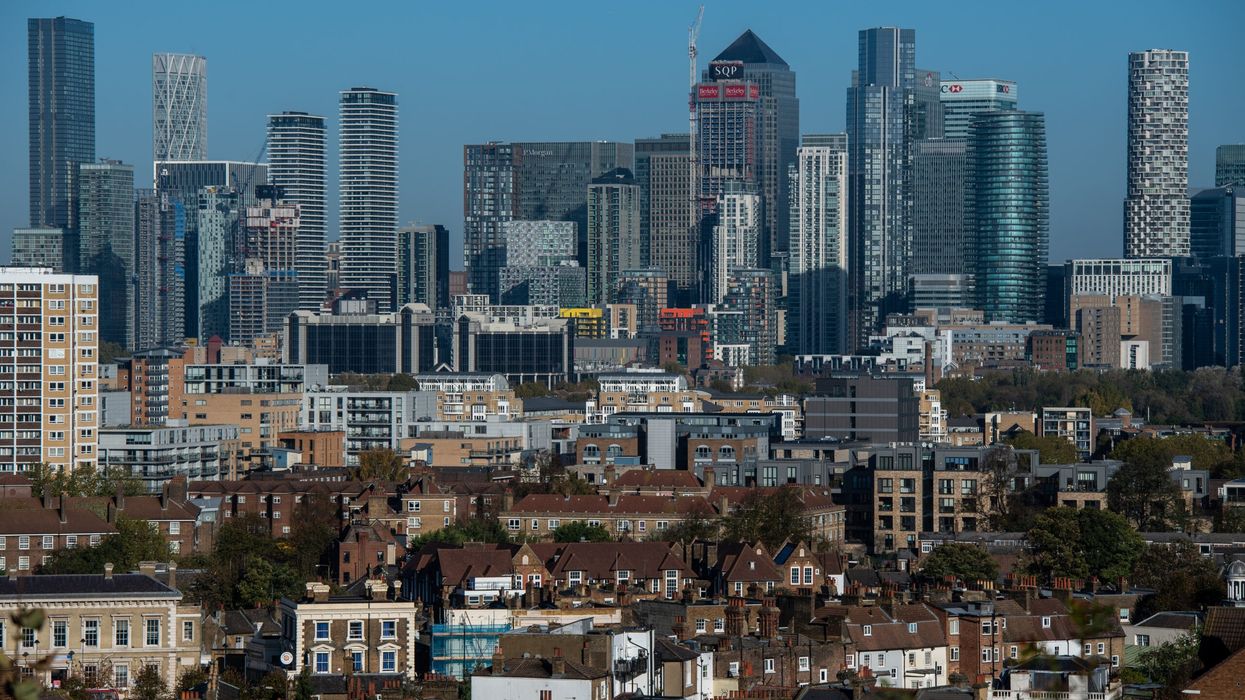URGENT action is needed to help the large number of south Asian households living in hidden poverty, anti-poverty campaigners have urged.
New research reveals that ethnic minorities are disproportionately affected by severe hardship in areas not accounted for in government measures targeting antideprivation funding.
The study by Queen’s University in Belfast said around 220,000 Pakistani people and nearly 200,000 Bangladeshi people are among the most deprived 10 per cent of the population, but their poverty is masked by neighbours who are better off.
One example cited was the Leamouth peninsula in Tower Hamlets, where the current measures of deprivation rank it among the least deprived 10 per cent of neighbourhoods in the country. But it also includes a Bangladeshiorigin community which can be ranked among the most impoverished 10 per cent.

Laurence Guinness, chief executive of The Childhood Trust, said the higher prevalence of poverty among people of Bangladeshi heritage in areas such as Newham in east London stems from com[1]plex factors such as low incomes and discrimination.
He told Eastern Eye, “Economic disparities - including lower average incomes and limited job oportunities in higher-paying sectors - contribute significantly.
“Education barriers, such as unequal access to quality education and lower educational attainment due to socioeconomic factors or language barriers, further perpetuate this cycle of poverty.
“Additionally, the high living costs and rents in areas like Newham can disproportionately affect communities with lower incomes, leading to inadequate living conditions and severe financial strain.
“It was also found that discrimination, both systemic and societal, also plays a role, limiting opportunities and exacerbating economic disadvantages among Bangladeshi communities.”
Overall, researchers found that hidden poverty affects an estimated 1.3 million people in England, such as in Aylesbury, London, Oxford and Manchester.
Guinness added that tackling these challenges involves reforms in education, focusing on the most disadvantaged areas to ensure equal opportunities, targeted employment initiatives to provide access to better-paying jobs and policies that focus on affordable housing to alleviate poverty.
He said, “Anti-discrimination measures and community support programmes are crucial to creating a more inclusive environment that fosters opportunities for all ethnic groups.
“Collaboration between local authorities, community organisations and advocacy groups is essential to implementing lasting solutions and reducing the disparity in poverty rates among different ethnic communities in areas like Newham.”
The study said the Bangladesh community living around Cambridge Heath in east London is ranked 19th in England out of a possible 69,000 for deprivation, while people who identify as “other white” are ranked 58,254th.
For British Pakistanis living in northwest England, areas that are least deprived for this group lie in close proximity to areas that are the most deprived.
Kudsia Batool, head of equality at the TUC trade union, told Eastern Eye, “Everyone deserves a decent standard of living.
“But too many black and minority ethnic workers are trapped in low-paid jobs on zero-hours contracts, with limited rights and protections and no guarantee of shifts, so they can’t plan their budgets and childcare from one week to the next.

She added, “It’s time to tackle the discrimination that holds BME workers back once and for all and ensure that everyone has access to decent, secure jobs.
“Labour’s New Deal for Working People would help to do this, marking a new chapter for workers’ rights in this country.” According to Batool, “It would ban zero-hour contracts, deliver fair pay agreements to boost pay and standards in social care, and introduce a duty on employers to report their ethnicity pay gap, which will all be changes that would have a big impact on BME workers.”
The study also cited the 2021 census showed that almost half of Bangladeshi people were unemployed or economically inactive, compared with just over a quarter for white English, Welsh, Scottish, Northern Irish or British people.
The researchers said: “The evidence of stark and persistent ethnic minority disadvantage encompassing domains of health, education, housing, labour market and criminal justice in the UK, is strong.
“Within this disadvantage, however, there is considerable variation. As a case in point, Pakistani men earn on average £4 less per hour compared with white British men, whereas Chinese men earn £1 more.
“Age-standardised poor selfrated health for Bangladeshi women is one and a half times worse than for white British women, whereas black African men are almost half as likely to report poor health compared with white British men.
“Questions remain as to whether and why some ethnic groups in some places are faring better than the others.”
Responding to the findings, a spokesperson for the Department for Levelling Up, Housing and Communities said: “We are committed to transforming our approach to data so we have the right information to make better decisions and target money where it’s most needed.”




